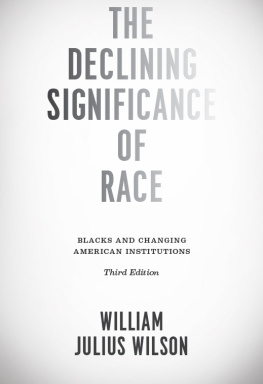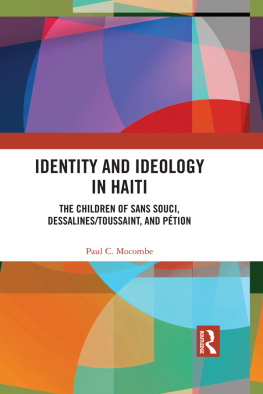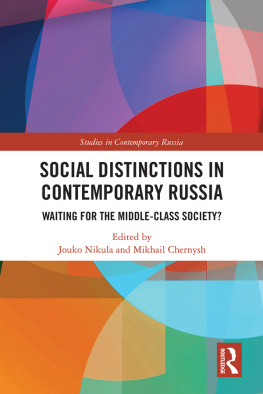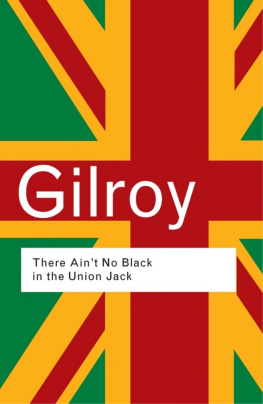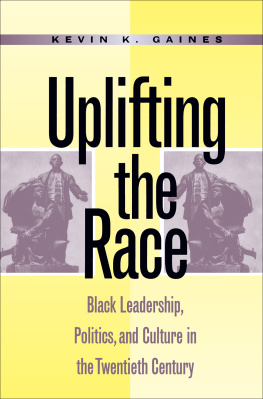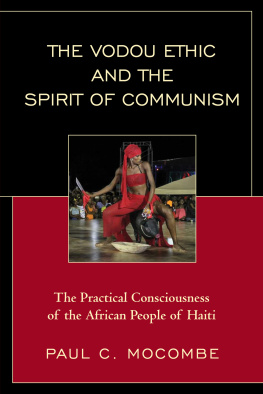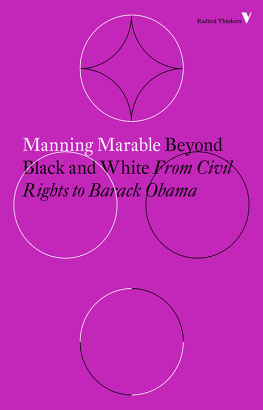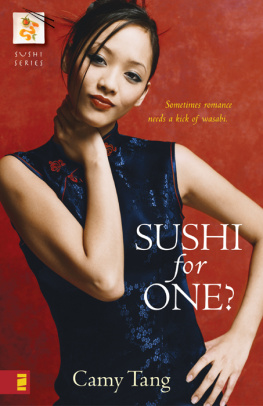Race and Class Distinctions Within Black Communities
This book offers both a philosophical and sociological model for understanding the constitution of identity in general, and black social identity in particular, without reverting to either a social or racial deterministic view of identity construction. Using a variant of structuration theory (phenom-enological structuralism) this work, against contemporary postmodern and post-structural theories, seeks to offer a dialectical understanding of the constitution of black American and British life within the class division and social relations of production of the global capitalist world-system, while accounting for black social agency.
Paul Camy Mocombe is Professor of Philosophy and Sociology at West Virginia State University.
Carol Tomlin is a Senior Lecturer in Education Studies at the University of Wolverhampton.
Cecile Wright is Professor of Sociology, Honorary academic, University of Nottingham.
Routledge Research in Race and Ethnicity
Racial Discrimination
Institutional Patterns and Politics
Masoud Kamali
Black Masculinity and Sexual Politics
Anthony J. Lemelle, Jr.
Represent
Art and Identity Among the Black Upper-Middle Class
Patricia A. Banks
Blackness and Transatlantic Irish Identity
Celtic Soul Brothers
Lauren Onkey
Music, Difference and the Residue of Race
Jo Haynes
Black Citizenship and Authenticity in the Civil Rights Movement
Randolph Hohle
Migrants and Race in the US
Territorial Racism and the Alien/Outside
Philip Kretsedemas
The Black Professional Middle Class
Race, Class, and Community in the Post-Civil Rights Era
Eric S. Brown
Race and Class Distinctions Within Black Communities
A Racial-Caste-in-Class
Paul Camy Mocombe, Carol Tomlin and Cecile Wright
First published 2014
by Routledge
711 Third Avenue, New York, NY 10017
and by Routledge
2 Park Square, Milton Park, Abingdon, Oxon OX14 4RN
Routledge is an imprint of the Taylor & Francis Group, an informa business
2014 Taylor & Francis
The right of Paul Camy Mocombe, Carol Tomlin and Cecile Wright to be identified as authors of this work has been asserted by them in accordance with sections 77 and 78 of the Copyright, Designs and Patents Act 1988.
All rights reserved. No part of this book may be reprinted or reproduced or utilised in any form or by any electronic, mechanical, or other means, now known or hereafter invented, including photocopying and recording, or in any information storage or retrieval system, without permission in writing from the publishers.
Trademark notice: Product or corporate names may be trademarks or registered trademarks, and are used only for identification and explanation without intent to infringe.
Library of Congress Cataloging-in-Publication Data
Mocombe, Paul Camy.
Race and class distinctions within Black communities : a racial-caste-in-class / by Paul Camy Mocombe, Carol Tomlin, Cecile Wright.1stEdition.
pages cm. (Routledge research in race and ethnicity ; 9)
Includes bibliographical references and index.
1. BlacksRace identityUnited States. 2. BlacksRace identityGreat Britain. 3. Social classesUnited States. 4. Social classesGreat Britain. 5. StructuralismUnited States. 6. StructuralismGreat Britain. I. Tomlin, Carol. II. Wright, Cecile. III. Title.
E185.625.M635 2013
305.896073dc23
2013021958
ISBN13: 978-0-415-71437-2 (hbk)
ISBN13: 978-1-315-88276-5 (ebk)
Typeset in Sabon
by IBT Global.
Contents
To my attorney, Alfreda Coward; you are my earthly goddess of deliverance and freedom.
Paul Camy Mocombe, January 27, 2013
I would like to acknowledge my Lord and Saviour Jesus Christ for his continued love and strength. I extend my gratitude to the following individuals: my mother Sylvie and siblings Tony and Beryl; co-pastor and best friend Rev. Tamika Pusey-Squire. I would also like to thank my church family, Restoration Fellowship Ministries, for their prayer, love, and support.
Carol Tomlin, May 13, 2013
To Clive, Timothy, and Thomas.
Cecile Wright, May 19, 2013
Race and class distinctions within black communities in the United States (US) and United Kingdom (UK) must be understood as being predominantly constituted within and by the two dominant social class language games, a black bourgeoisie and underclass, created by the class divisions and social relations of production of global capitalism or the capitalist world-system. This Marxist dialectical perspective stands against contemporary postmodern and post-structural theories, which focus on local formations, heterogeneity, the diverse, the subjective, the spontaneous, the relative, and the fragmentary as the basis for understanding the constitution of black identities and consciousnesses in the US and UK. The latter positions, we argue in this work, are also the product of class division and social relations of production in late postindustrial capitalist development and organization. As a result, they fail to adequately address the issues regarding the origins and basis for the constitution of black identities and consciousnesses in America and the UK. Using a variant of structuration theory, what we are calling phenomenological structuralism, this work, against contemporary postmodern and post-structural theories, seeks to offer a dialectical understanding of the constitution of black American and British life within the class divisions and social relations of production of the global capitalist world-system while accounting for black social agency.
Since the 1960s, there have been four similar schools of thought on understanding the origins and nature of black practical consciousnesses in the US and the UK: the adaptive-vitality and the pathological-pathogenic schools in the US; and the anti-essentialist and anti-anti-essentialist schools in the UK. In the US, the pathological-pathogenic position suggests that in its divergences from white American norms and values black American practical consciousness is nothing more than a pathological form of, and reaction to, American consciousness rather than a dual (both African and American) hegemonic opposing identity-in-differential (the term is Gaya-tri Spivaks) to the American one. Proponents of the adaptive-vitality school suggest that the divergences are not pathologies but African institutional transformations preserved on the American landscape. Similarly in the UK, the two main opposing schools of thought are the anti-essentialist and the anti-anti-essentialist. Anti-essentialists, like proponents of the US pathological-pathogenic school, argue against any ideas of a black innate cultural phenomenon that unites all black people, and contends that diasporic identities and cultures cannot place African origin at the center of any attempt to understand the nature of black practical consciousnesses in the UK. The anti-anti-essentialist position, in keeping with the logic of the adaptive-vitality school, posits, on the contrary, the idea that African memory retentions exist in diasporic cultures to some degree. Contemporarily, all four positions have been criticized for either their structural determinism, as in the case of the pathological-pathogenic and anti-essentialist approaches, or racial/cultural determinism, as in the case of the adaptive-vitality and anti-anti-essentialist positions (Karenga, 1993).


